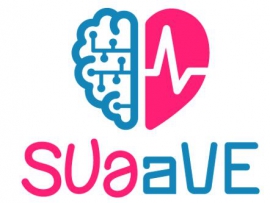The connected and autonomous vehicle already exists, but it is not fully accepted by users. Despite its advantages in terms of distraction related accidents reduction or the inclusion of people who need door-to-door transport, there is a reluctance to incorporate them on a day-to-day basis.
Indeed, social problems related to public acceptance, user awareness and ethics have become priority concerns for manufacturers and public administrations.
To address this problem, the Instituto de Biomecánica (IBV) is leading the European project SUaaVE (SUpporting acceptance of automated vehicle), funded by the Horizon 2020 program. The main objective of SUaaVE is to improve the response and sensitivity of the autonomous vehicle, making it more aware of the occupants, pedestrians and other drivers needs.
José Solaz, director of innovation in Automotive of the IBV, ensures that in this way “we will achieve a greater acceptance of the autonomous vehicle by solving the existing gap between technology and the real needs of citizens.”
This will be possible through close collaboration between companies, universities and technology centers, through a design process, known as people-oriented design (HDD) that will take into account the end user of the vehicle.
SUaaVE will solve this gap by improving the synergies of the social sciences, human factors research and the automobile market. “Placing the person in the center of technological development and not vice versa is key. I order to achieve it, we will carry out a continuous process of evaluation, collaborative design and creation of prototypes that will be tested by the future users” says the director of Automotive Market Innovation.
Participation of users and experts
More than 4,000 users of autonomous vehicles (passengers, traditional and future drivers, as well as vulnerable users) and more than 100 experts and interested entities will participate in the process.
The ten partners that, together with the IBV as coordinator, form the consortium are the Spanish companies IDIADA Automotive Technology and FICOSA ADAS; the FIAT Research Center in Italy; the University of Groningen (Holland); the MOV’EOTEC PARTNERSHIP Foundation, the French Transport Institute IFSTTAR, the Polytechnic Institute of Bordeaux and CIVITEC SARL in France; and the Technical University of Munich (Germany).
This project has been funded by the European Union’s Horizon 2020 research and innovation program under grant agreement No. 814999.




